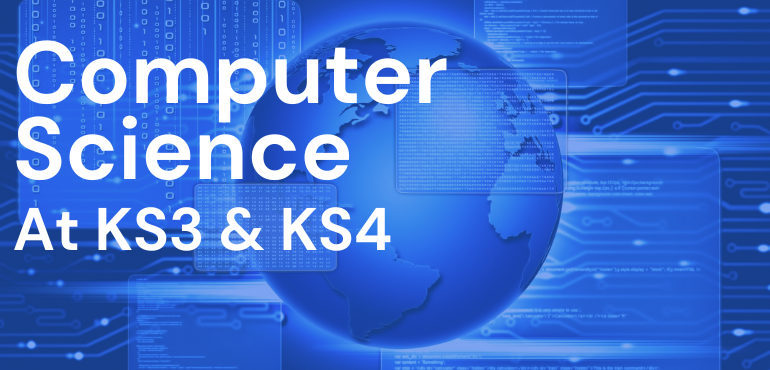
Our Computer Science curriculum provides students with a strong foundation in digital literacy, computational thinking, and problem-solving. Designed in accordance with the National Curriculum, the programme ensures that learners develop both the theoretical understanding and practical skills required for success in an increasingly technology-driven world.
We also customise Computer Science training to align with each school’s specific syllabus, ensuring that the course content and delivery are fully tailored to meet the curriculum requirements and learning objectives of your institution. This approach allows us to provide a bespoke learning experience, precisely reflecting the topics and standards relevant to your school.
Through engaging and structured lessons, students progress from fundamental computing concepts at Key Stage 3 to more advanced programming, systems theory, and analytical approaches at Key Stage 4 (GCSE level). Our aim is to foster curiosity, creativity, and critical thinking, preparing students not only for academic achievement but also for future studies and careers in computing and related disciplines.
Develop a clear understanding of the fundamental principles and concepts of computer science, including abstraction, logic, algorithms, and data representation. Analyse and solve problems using computational thinking, supported by regular practice in writing computer programs. Apply information technology effectively and critically, making use of both familiar and emerging technologies to address real-world problems. Become responsible, capable, confident, and creative users of digital tools and communication technologies.
Formative assessment is embedded within each lesson to help teachers monitor progress and adapt their teaching to meet learners’ needs.
Assessment methods include:
A formal assessment is administered at the end of each topic to measure student understanding. Additional end-of-half-term or end-of-term tests are carried out to evaluate overall achievement and readiness for the next stage of learning.
Considering primary motivation for the generation of narratives is a useful concept

I was intimidated by AI, but this course made it so accessible! The instructor broke down complex ideas into simple, relatable concepts. I finally understand how AI works in the world around me. A perfect starting point.

The project-based approach was fantastic. Building my own recommendation engine from scratch was challenging but incredibly rewarding. The lessons stuck because I applied them immediately. Highly recommend for practical learners!

This wasn't just theory. The course focused on the exact tools and frameworks used in the industry. I was able to add a significant project to my portfolio and discuss it confidently in interviews. Landed a new job within months!

As a working professional, the flexible, self-paced format was a lifesaver. The bite-sized video lectures and clear assignments made it easy to fit learning into my busy week without feeling overwhelmed. Excellent for part-time study.

This course went beyond the basics and really delved into the 'why' behind the algorithms. The instructor's passion for machine learning was contagious, and the advanced content has given me a strong foundation for my master's degree.